Blog
Insights
Beyond Volume: How Sudvin is Elevating Bulk Wine in a Changing Market
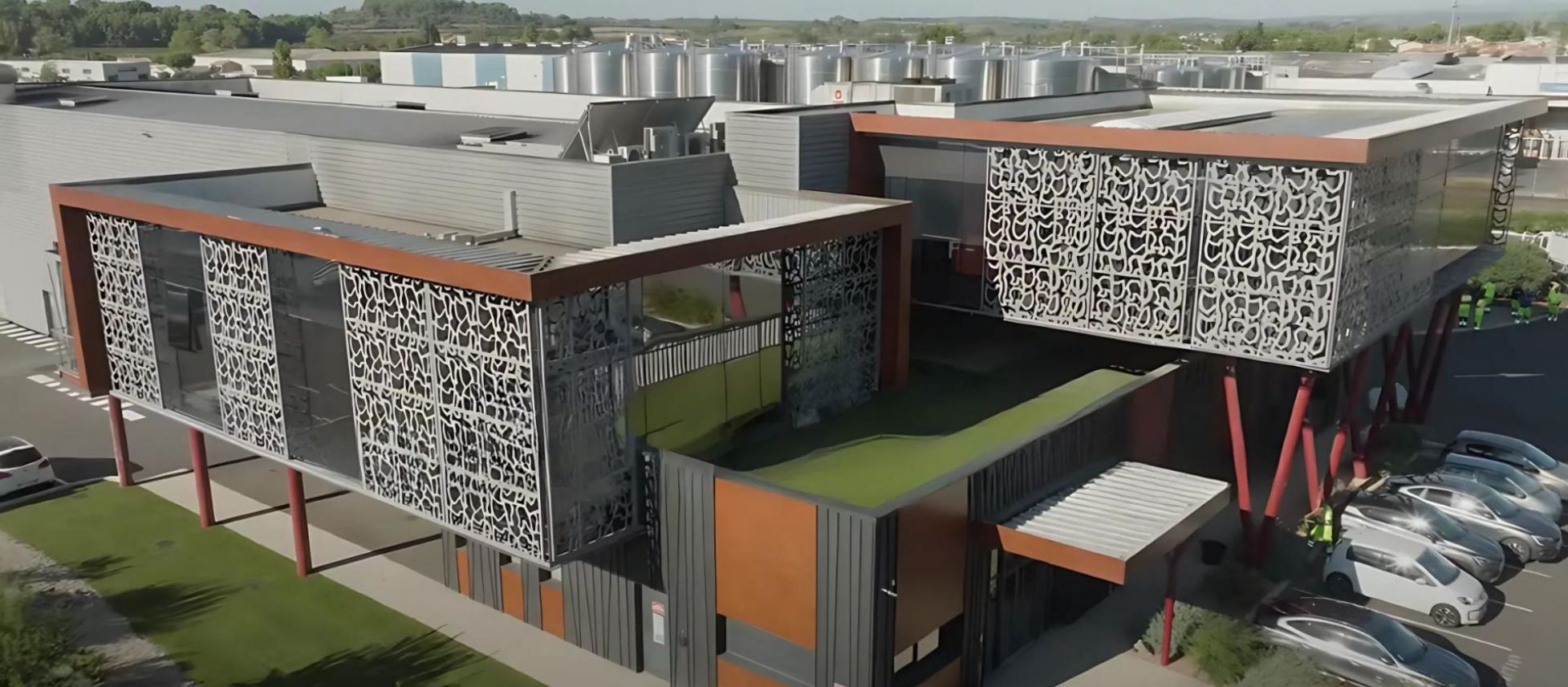
From low-alcohol wines to AI—Sudvin’s roadmap for the future
Bulk wine has long been seen as the workhorse of the wine industry—necessary but often overlooked in favor of bottled brands. Yet, as consumer preferences shift, sustainability becomes a priority, and winemaking technology advances, bulk wine is undergoing a quiet but significant transformation. Sudvin, a key player in the French and international bulk wine market has a deep-rooted connection to France’s cooperative winemaking traditions and the backing of InVivo, one of Europe’s largest agricultural groups, Sudvin is redefining what bulk wine can be.
From investing in low-alcohol and de-alcoholized wines to leveraging AI for operational efficiency, Sudvin is positioning itself as not just a supplier but a strategic partner to some of the world’s top wine brands. In this interview, Aurore Winter, Sudvin’s export and development lead, shares insights into the company’s forward-thinking approach—one that combines innovation, adaptability, and a strong commitment to sustainability.
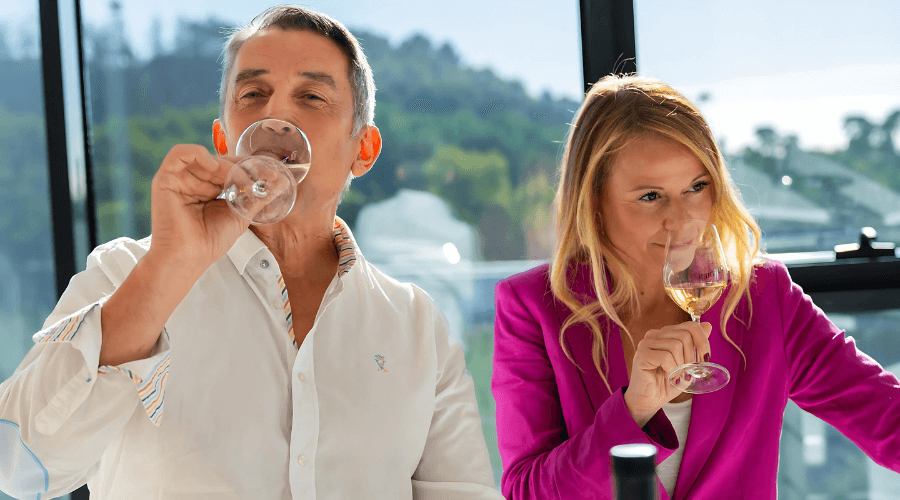
Image: (Left) Eric Lanxade, General Manager; (Right) Aurore Winter, Sales Manager.
Given the rising consumer interest in white and sparkling wines, how is Sudvin adjusting its sourcing and production strategies to align with these evolving preferences?
Sudvin set up a subsidiary in Gascony in 2023 to source and vinify aromatic white wines and white wines for sparkling. This subsidiary is being strengthened by a strong internal partnership with the Charente cooperative Océalia, a member of Union Invivo, a leading European agricultural group to which we also belong.
In the Languedoc region, at Sudvin's head office in Béziers, we are working with our shareholder cellars and partners towards a vinification process designed to produce excellent white and rosé sparkling base wines at low alcohol levels - between 10.5° and 11° maximum.
The same applies to our subsidiary in South Africa, where we have some fine 9° Sauvignons made for carbonation.
Our strength lies in our business model within the Invivo group and the network of our own bulk wine subsidiaries.
This enables us to offer and control a wide range of bulk wines, destined for the Charmat method or carbonation. With all its subsidiaries, Sudvin has become the specialist and trusted partner of the world’s leading sparkling wine companies and brands.
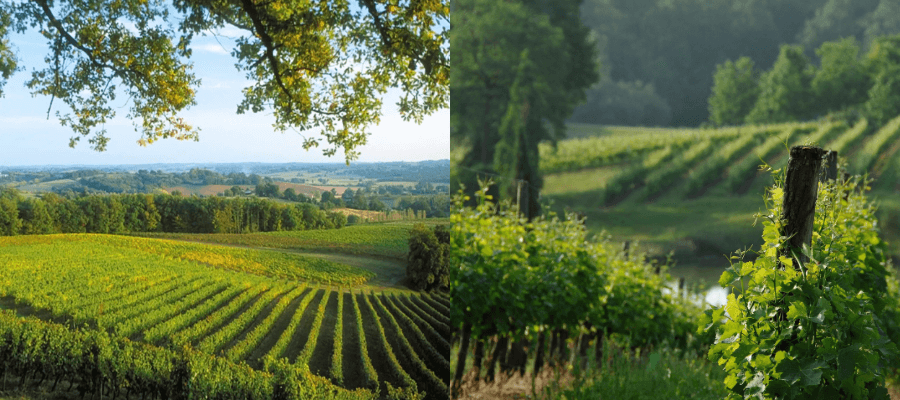
Image: Vineyards and landscape of Sabazan.
The global decline in wine consumption and issues like oversupply have been challenging for the industry. How is Sudvin addressing these challenges to maintain its market position?
We have 2 different approaches:
1. “Volume” markets: Germany and Europe in general.
The keys to success are:
- Aggressive pricing thanks to tight control of the cost chain.
- Adaptability and responsiveness throughout the year, to support our customers in their own sales rhythms (e.g. changes in loadings due to postponements of our customers' promotional operations, or the ability to serve orders from one day to the next).
- The constancy and consistency of our quality policy: after a recent unannounced audit, we obtained an excellent rating of 99.76 % and AA+ for the renewal of our IFS BRCGS certification. We are also building a solid CSR policy thanks to our Invivo group, and we maintain a high level of certification and labeling thanks to our Coop partners (BIO-NOP, HVE, Vignerons Engagés, etc.).
2. “Private Label” markets
The keys to success are :
- Diversification of our range of bulk wines and premiumization of our offer, thanks in particular to our Beaujolais Bourgogne subsidiary Georges Benon.
- Customer support: the bulk winemaker becomes an essential element in the marketing and sales forces of this type of customer. Sudvin puts wine back at the heart of customer projects, making each bulk wine unique. Sudvin tells the wine story differently, highlighting each terroir and making suggestions for the final recipes. Sudvin aims to make the bulk wine sector more sexy! It’s been considered down-market or too technical for too long! For the record, we even created a Deezer playlist for a very dynamic US customer in the canned wine segment. Customer service is our raison d'être.
[[relatedPurchasesItems-62]]
With advancements in wine production and distribution technologies, how is Sudvin integrating innovation to enhance product quality and operational efficiency?
We already have a very modern winery and infrastructures offering a working environment that would make many envious. With its subsidiaries, Sudvin can offer various technologies such as stabilization by cold stabulation or electrodialysis, Sudvin can also pasteurize de-alcoholized bulk wine, and of course, we are equipped with all the tools such as tangential filters, and FTIR infra-analyzers... The ultimate step on the technical level would be the automation of the valve system, but this represents a huge investment.
So, for us, the key areas for progress are not so much in the industrial tool as in the digitalization of our offer and our work processes.
- For example, we're going to launch our marketplace, making our offerings more accessible and visible worldwide.
- We're also going to liven up our stands at trade fairs with wine on tap rather than sample bottles, which generate far too much waste.
- We'll be using our InVivo group's AI to manage our database and generate technical and marketing documents for our customers. Internally, this AI will enable us to launch a project to automate our traceability process.
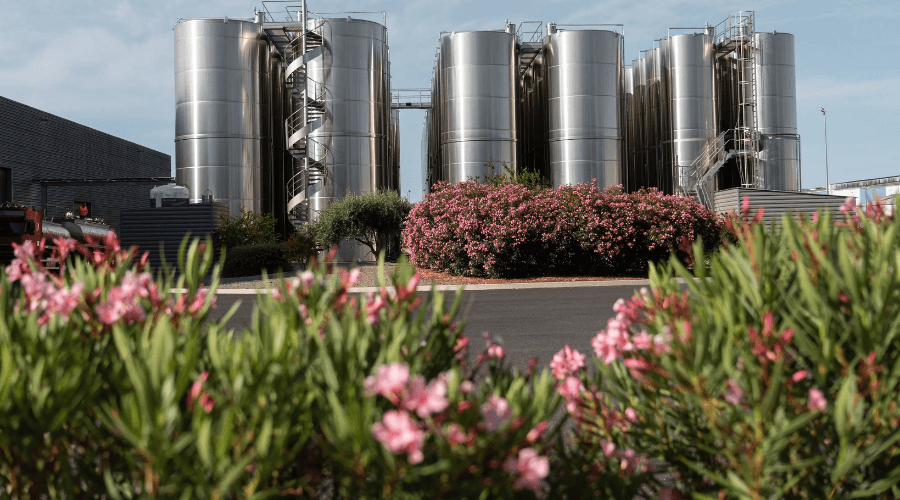
Image: Sudvin Groupe INVIVO winery.
Sudvin has a presence in diverse markets, including Europe, North America, and Moldova. How does the company tailor its strategies to meet the unique demands of these varied markets?
We are already present at the following trade fairs: WBWE Amsterdam, Wine Paris, and Prowein Düsseldorf. We plan to extend our presence to other trade shows in the USA and India. This will enable us to better understand the specificities of these markets.
The international network of our InVivo group is also an interesting support to help us understand consumer trends around the world.
We also rely on a solid partnership that is too often underestimated: the French customs services. They are a real help in understanding the regulatory specifics of each market.
AI can also be a formidable tool to help identify certain levers, but let's not forget one essential thing: listening to the customer and building a solid partnership with every bottler in the world.
Sharing information between all our bulk wine specialists is also part of our daily routine. After all, the bulk wine sector is quite small.
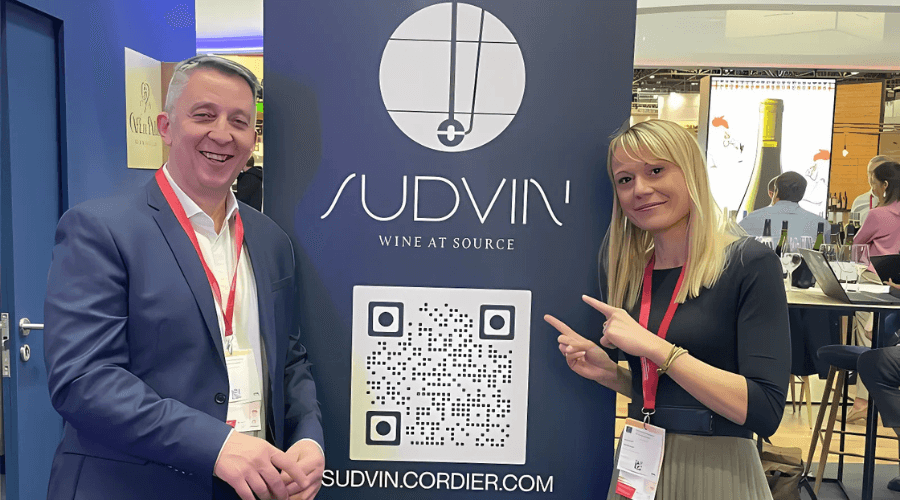
Image: The Sudvin team at ProWein, 2024.
Looking ahead to 2025 and beyond, what trends do you anticipate in the bulk wine industry, and how is Sudvin preparing to capitalize on these opportunities?
The Sudvin team has identified the following trends and has already built part of its offer with them in mind.
1. Naturally low-alcohol, low-calorie wines: our buyers are working to guide vinification and harvesting at our cooperative shareholders. For the past 2 years, we have been able to offer wines at 9° natural alcohol, and for the next harvest, strategic choices will be made at vinification time to expand this range.
2. De-alcoholized wines: Sudvin is already well-established in this segment. Indeed, Sudvin is fortunate to have been a member of the Arzens distillery for 2 years, an innovative distillery (they have photovoltaic panels and a latest-generation boiler that uses energy from the combustion of grape seeds). We are not newcomers to this business, we've already mastered the art of supplying bulk wine without alcohol, supplying some 5 million liters of dealcoholized wine, notably for our customer and partner the Cordier group, a pioneer in this product segment with its Artis and Bonne Nouvelle brands.
3. Niche grape varieties and resistant varieties (PIWI): these are already present in our offer. For example, we recently supplied a very pretty Vin de France Muscat de Hambourg rosé vintage 24, naturally low at 9°, to a long-standing customer who likes to take risks: the end result is a refreshing, pearly rosé blush! We also include so-called “resistant” varieties such as Floréal, Soréli, and Artaban in some of our blends: these varieties are as poetic and colorful on the palate as their names!
4. Drink wine like beer: More and more, we offer red wines with a light tannic structure and a low alcohol content (11°), so that they can be served chilled. Once again the work we carried out together, in conjunction with our cooperative partners, comes into its own. We'll need to focus our winemaking on the grape varieties that lend themselves best to this, such as Merlot, Gamay, malbec, and Pinot.
5. Wines with a low carbon footprint: the tankers we charter run on bio-ethanol fuel of vinous origin, emitting 90% less CO2 than petroleum-based fuel - it's a circular, local, and sustainable energy source. The same goes for the 24,000l or 270Hl flexitanks sent for export: remember that a 24,000l flexitank of bulk wine in a 20' container is the equivalent of 3 to 4 20' containers of bottles! Bottling wine in the country where it is consumed is becoming a key ecological issue, which also encourages local employment.
Through these trends, Sudvin, with its innovative bulk wine offer, meets the Invivo Group's strong CSR commitments:
- Working towards zero pesticide
- Restoring biodiversity
- Contributing to carbon neutrality
- Regenerating the soil
- Diversifying farmers’ income
Bulkwine is a sustainable solution!
« Bulkwine…The New State of Mind, the New State of Wine »
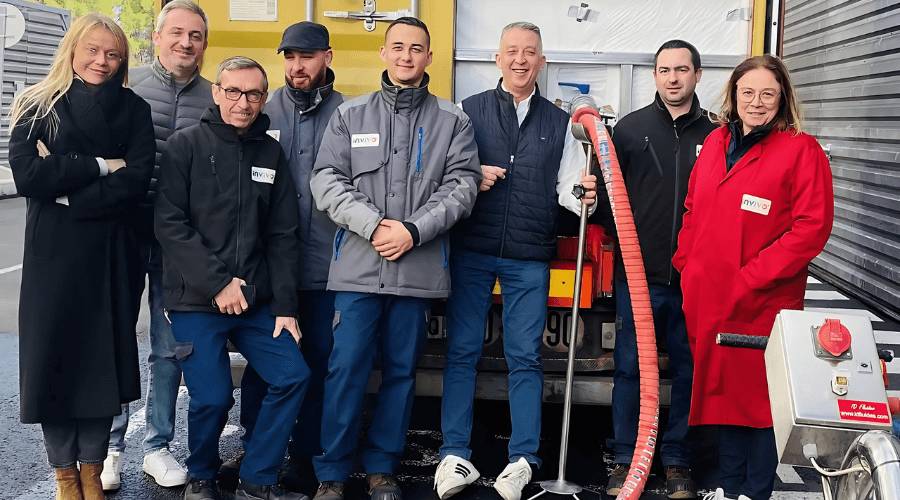
Image: The Sudvin team.
Conclusion:
The bulk wine industry is no longer just about volume—it’s about adding value, responding to shifting consumer expectations and integrating sustainable practices at every level. Sudvin’s approach, as outlined by Aurore Winter, is a reflection of how the sector is evolving. By prioritizing naturally low-alcohol wines, embracing digital transformation, and ensuring that every liter of wine tells a story, the company is shaping the future of bulk wine in ways that go far beyond cost efficiency.
Looking ahead, Sudvin sees an opportunity amidst the challenges—whether it’s in catering to new drinking habits, expanding into emerging markets, or reinforcing the sustainability of bulk wine as a lower-carbon alternative to bottled exports. As the industry continues to evolve, one thing is clear: bulk wine cannot be seen as just a commodity—it’s a dynamic, strategic, and increasingly premium part of the global wine market.
In conversation with Malvika Patel, Editor and VP, Beverage Trade Network
Also Read:
From Bulk to Bottle: Inside the Business of Bulk Wine and Spirits
Blends, Trends, and Markets: How Parras Wines is Adapting to the Future
No one Is Talking About Bulk Wine, but They Should
If you're a bulk wine or bulk spirits supplier, contract bottler, or private label producer aiming to connect with serious trade buyers, IBWSS San Francisco 2025 is the event you can't afford to miss. Get a quotation or Book a exhibitor table.

